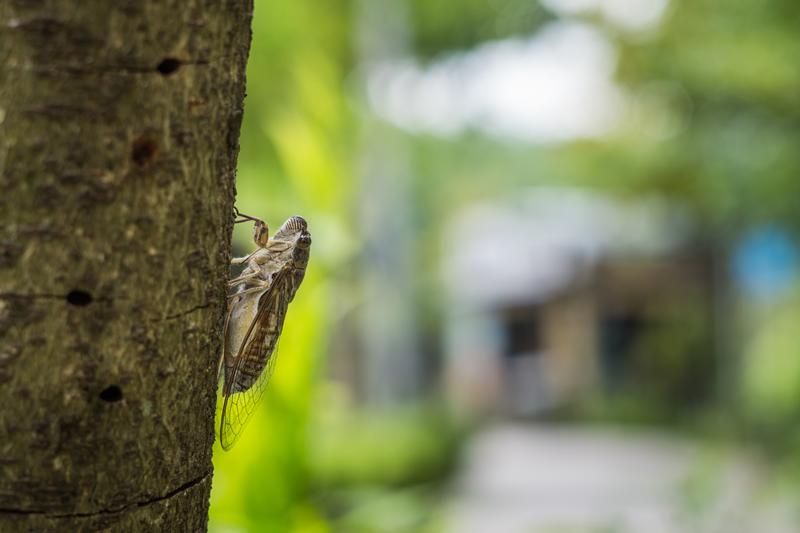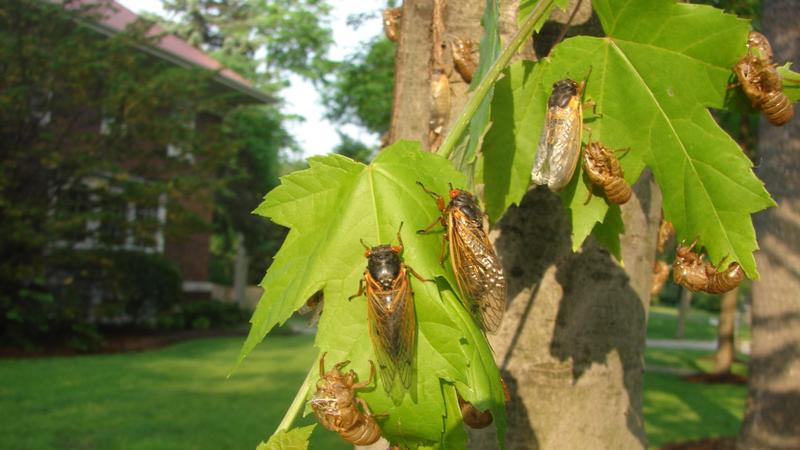
Get Ready for the 17-Year Brood X Cicadas
The Big Brood is Coming
Some rare events are exciting, like eclipses, or the annual monarch butterfly migration. Others—like the emergence of the Brood X Cicada—draw a different fascination. Though this once-every-17-year phenomenon has everyone abuzz, thankfully it’s not a cause for worry. So, whether the big event has you fascinated or flummoxed, we’ve got all the facts for you here.
Meet the Big Brood
The Brood X Cicada, also known as the 17-year cicada, earned its nickname because they emerge from the ground every 17 years.

But the timeframe isn’t the only thing that makes the occurrence remarkable; it’s also the quantity. Starting in May, billions will appear in the eastern United States, including Pennsylvania, Delaware, New Jersey, Virginia, Maryland, Western North Carolina, Tennessee, Georgia, Ohio, Indiana, and Southern Michigan. Sure, there are other cicada broods with different cycles that entomologists track, but none are as populated as Brood X.
Noisy Neighbors
While their numbers might sound intimidating, thankfully the cicadas are harmless to humans, and for the most part pose no threats to your plants. They won’t sting or bite, but they do hatch their eggs in small slits the female cuts into the twigs of trees. This causes flagging, or in layman’s terms, breakage at the tips of the branches. For this reason, it may be necessary to protect your small trees.
So, what’s all the fuss about? In short, the noise. Cicadas are already a noisy bunch, but in numbers this great, their mating song can be deafening. Aside from an assault on the ears, they may also offend your nose. The good news is the cicadas die off just 4 weeks after emerging. The bad news: dead cicadas can smell unpleasant.
What You Can Do

This answer might disappoint. The truth is there’s not much you can do. The emergence can’t be stopped, and because cicadas don’t bite, or sting, it’s not really an option to spray to kill. Plus, the sheer number of cicadas and the amount of time it takes for the insecticide to act makes chemical control less viable, especially in relation to the short egg laying timeframe.
That said, if you have small ornamental, shade, or fruit trees you’re concerned could be at risk, the trees can be covered with cheese cloth or tight bird netting to prevent the cicadas from reaching the twigs. If you have some of the cicada’s preferred host trees that are too large to cover—like oak, apple, hickory, and dogwood—talk with your landscape partner about whether a applying a contact insecticide would make sense.
For properties located in areas predicted to have heavy cicada populations, hold off on planting woody ornamentals or trees until the next planting season after the emergence to ensure the new plants aren’t damaged. You might also want to consider asking your landscape partner to blow off the dead bugs from roads, sidewalks, and patios multiple times a day during the event. This is especially helpful in controlling the smell and keeping the birds, squirrels, and rodents that feed on the dead cicadas at bay.
The bottom line: while they might bug you (sorry, we couldn’t resist), the Big Brood cicadas won’t harm you. So, hang in there. Activity will peak by mid-June, and after their die off four weeks later, they’ll be a distant memory. At least until 17 years from now.
Brood X Cicadas will soon be emerging. Here's what you can expect, Fox 43 News
Great Service, Beautiful Landscapes
Benefit from a comprehensive landscape maintenance plan designed to meet your needs and exceed your expectations, all delivered by a team invested in your success.



